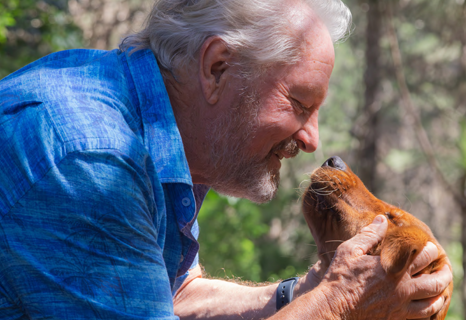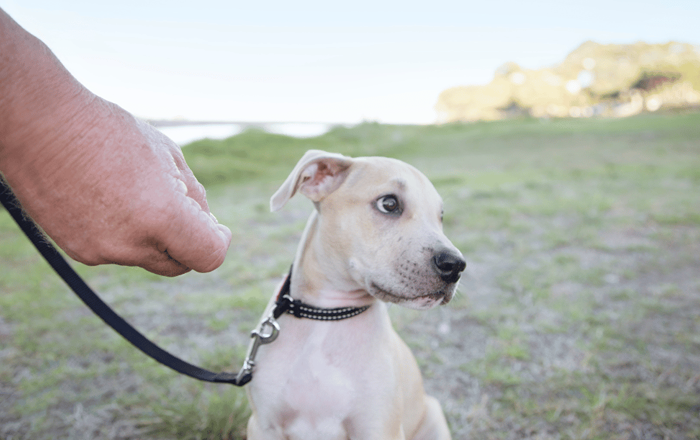
Mark Vette is a world-renowned Animal Behaviourist, Zoologist and Trainer. He brings together a unique combination of academic studies with 40 years of applied clinical animal behaviour consulting and treatment. Mark is a member of the International Association of Animal Behaviour Consultants. This article was written by Mark and the views expressed are his own.
Labrador owners, this one probably ain’t for you!
It’s difficult to do training when your dog isn’t food motivated. If this is the case for you, here are a few tips that may help.

- Ensure your dog is HUNGRY for training sessions. Skip your dog’s breakfast before doing any training, you can make up for the lost food amount with training treats.
- Use very high value food rewards when training. Test a few to see what really gets your dog going. We find cooked chicken pieces, cheese and cubes of dog roll usually work much better than dry commercial treats.
- Start by tossing tidbits of special food on the floor and click with a clicker when your dog eats them. Do this for a few days to pair up the clicker and the treats then you can get started with using a clicker to teach basic commands with treats, which can help with your dog’s food motivation.
- Will your dog work for a favourite toy or pats and praise? If so, you can certainly use praise but when shaping new behaviours or changing old behaviours using food and the clicker will be much quicker and longer term, so if you can build up some food motivation then it’s easier to train.
- If your dog struggles to eat or is underweight, speak to your vet. A vet may be able to prescribe an appetite stimulant to get that food motivation going.
- Ensure your dog is in a Learning State. If your dog is stressed, scared, aggressive or highly distracted, they aren’t in a Learning State and won’t take treats from you. If this is the reason your dog doesn’t take treats, you’ll need to address the root cause of the issue first.
Always consult your vet on the best way to look after your pet. And to avoid unexpected costs, make sure your pet is insured.
Have a look at our pet insurance plans to choose the right insurance plan for your pet.
